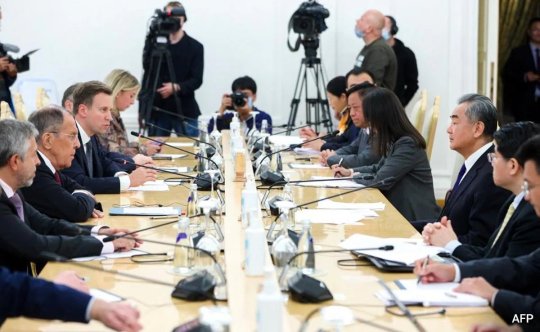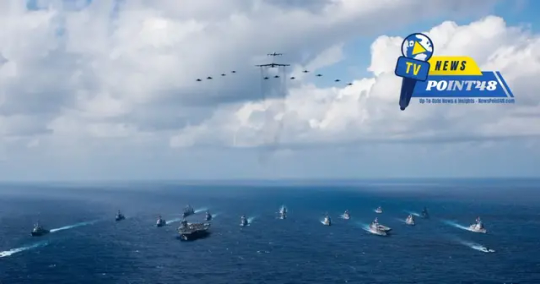#GlobalStability
Explore tagged Tumblr posts
Text
The Role of Bitcoin in Global Stability

In a world increasingly defined by financial instability and geopolitical tension, the search for a reliable, stable store of value has never been more urgent. Traditional financial systems, once considered bastions of stability, have shown cracks under the weight of economic crises, excessive money printing, and political uncertainty. Amidst this backdrop, Bitcoin has emerged not only as a revolutionary financial technology but as a potential anchor of stability in an unstable world.
Bitcoin as a Hedge Against Inflation
Inflation is a silent thief that erodes the purchasing power of hard-earned money. In countries where hyperinflation has taken hold, such as Venezuela and Zimbabwe, local currencies have become nearly worthless, driving people to seek refuge in more stable assets. Bitcoin, with its fixed supply of 21 million coins, offers a stark contrast to fiat currencies that can be printed at will. This scarcity makes Bitcoin an effective hedge against inflation, preserving value over time.
The recent surge in Bitcoin adoption in countries experiencing economic turmoil highlights its growing role as a lifeline for those seeking financial security. As governments continue to devalue their currencies through reckless monetary policies, Bitcoin’s inherent deflationary nature becomes increasingly attractive.
Decentralization as a Source of Stability
One of Bitcoin's most powerful features is its decentralization. Unlike traditional financial systems controlled by central banks and governments, Bitcoin operates on a peer-to-peer network, free from centralized control. This decentralization provides a level of security and resilience that is unmatched by any other financial system.
In a world where trust in institutions is waning, Bitcoin offers a transparent and tamper-proof alternative. Its blockchain technology ensures that transactions are secure, verifiable, and immutable, reducing the risk of fraud and corruption. This trustless system is particularly valuable in regions where financial corruption and instability are rampant, offering a reliable store of value and medium of exchange.
Bitcoin's Impact on Global Trade
The global trade system, burdened by currency fluctuations and the complexities of cross-border transactions, is ripe for disruption. Bitcoin, with its ability to transcend national borders and operate independently of any one country's monetary policy, has the potential to streamline international trade.
By reducing the need for costly currency exchanges and lowering transaction fees, Bitcoin can facilitate smoother and more efficient global trade. This efficiency not only benefits large corporations but also small businesses and individuals who can now participate in the global economy without the barriers imposed by traditional financial systems.
As Bitcoin adoption grows, its role in global trade could become a key factor in stabilizing international relations and fostering economic growth, particularly in developing nations.
The Environmental Impact: A Double-Edged Sword
Bitcoin’s environmental impact has been a topic of heated debate. Critics often point to the significant energy consumption associated with Bitcoin mining, raising concerns about its sustainability. However, this narrative overlooks a critical aspect of Bitcoin's relationship with energy: its potential to stabilize energy grids and contribute to the development of renewable energy sources.
Bitcoin miners often set up operations in regions with abundant but underutilized energy resources, such as hydroelectric power in remote areas. By converting excess energy that would otherwise go to waste into Bitcoin, these miners not only create economic value but also contribute to grid stability. In times of high energy demand, mining operations can be temporarily scaled back, allowing that energy to be redirected to where it is most needed.
Moreover, Bitcoin mining is increasingly being integrated with renewable energy projects, turning what was once seen as an environmental liability into a potential asset. As the world transitions to more sustainable energy sources, Bitcoin’s role in this ecosystem could prove to be a game-changer.
The Future of Bitcoin in Global Finance
Looking ahead, Bitcoin’s potential to serve as a cornerstone of global finance is becoming more apparent. As more institutions, corporations, and even governments begin to recognize Bitcoin's value, its adoption could lead to a more stable and equitable financial system worldwide.
Imagine a world where Bitcoin serves as a universal reserve asset, underpinning national currencies and fostering a new era of financial stability. This is not just a pipe dream; it is a real possibility as the global financial landscape continues to evolve. Bitcoin’s transparent, decentralized, and deflationary nature makes it uniquely suited to play this role.
Conclusion
Bitcoin is more than just a digital currency; it is a force for global stability in a world fraught with uncertainty. Its role as a hedge against inflation, its decentralized nature, and its potential to revolutionize global trade all point to a future where Bitcoin plays a central role in the global financial system.
Furthermore, Bitcoin’s interaction with energy grids and renewable resources adds a new dimension to its potential as a stabilizing force, not just in finance but in the broader context of global sustainability. As we move forward, the world will increasingly look to Bitcoin as a beacon of stability and a foundation for a more secure and equitable future.
Now is the time to recognize the transformative power of Bitcoin and consider its broader implications beyond mere price speculation. The future of global stability may well rest on the shoulders of this remarkable technology, and those who understand and embrace it will be at the forefront of a new era in human history.
Take Action Towards Financial Independence
If this article has sparked your interest in the transformative potential of Bitcoin, there's so much more to explore! Dive deeper into the world of financial independence and revolutionize your understanding of money by following my blog and subscribing to my YouTube channel.
🌐 Blog: Unplugged Financial Blog Stay updated with insightful articles, detailed analyses, and practical advice on navigating the evolving financial landscape. Learn about the history of money, the flaws in our current financial systems, and how Bitcoin can offer a path to a more secure and independent financial future.
📺 YouTube Channel: Unplugged Financial Subscribe to our YouTube channel for engaging video content that breaks down complex financial topics into easy-to-understand segments. From in-depth discussions on monetary policies to the latest trends in cryptocurrency, our videos will equip you with the knowledge you need to make informed financial decisions.
👍 Like, subscribe, and hit the notification bell to stay updated with our latest content. Whether you're a seasoned investor, a curious newcomer, or someone concerned about the future of your financial health, our community is here to support you on your journey to financial independence.
Support the Cause
If you enjoyed what you read and believe in the mission of spreading awareness about Bitcoin, I would greatly appreciate your support. Every little bit helps keep the content going and allows me to continue educating others about the future of finance.
Donate Bitcoin: bc1qpn98s4gtlvy686jne0sr8ccvfaxz646kk2tl8lu38zz4dvyyvflqgddylk
Thank you for your support!
#Bitcoin#Cryptocurrency#GlobalStability#FinancialRevolution#Decentralization#InflationHedge#Blockchain#GlobalTrade#DigitalCurrency#SoundMoney#EnergyInnovation#Sustainability#EconomicFreedom#CryptoAdoption#BitcoinMining#financial experts#finance#financial empowerment#financial education#globaleconomy#unplugged financial
2 notes
·
View notes
Text
Biden's Air Defense Promise to Ukraine: A Critical Turning Point in NATO's Development
Biden's Air Defense Promise to Ukraine: A Critical Turning Point in NATO's Development
During the NATO summit, Biden pledged to provide Ukraine with cutting-edge air defense systems, highlighting the alliance's strength and cohesion against Russian aggression.
In the ongoing war between Russia and Ukraine, US President Joe Biden's recent pledge to provide Ukraine with five new strategic air defense systems is a turning point that represents changes to NATO's composition and strategic aims. NATO leaders are about to make new promises in Washington, DC, where President Joe Biden emphasized in a strong speech that the commitment had only been lessened because of increased tension and an increasing number of civilian losses. It talks about the wider geopolitical background, the strategic significance of the weapon systems, and the announcement's several repercussions.
Biden's Strategic Position:
The alliance's involvement in the war is thought to have escalated to a new level when Biden declared his support for Ukraine during a NATO conference. Germany, Italy, the Netherlands, and Romania are among the US allies that are anticipated to supply Kyiv with Patriot missile batteries to counter other air defense systems. This action is a direct reaction to the Russians' ceaseless attacks, which have resulted in significant civilian casualties, notably the most recent missile attack on Kyiv Children's Hospital, which left 43 people dead and hundreds more injured.
The Patriot missile is a well-defended missile battery against ballistic missiles; these cutting-edge defensive weapons will not be supplied as a symbolic boost to Ukraine's defense. The Economist's defense editor, Shashank Joshi, claims that Ukraine would require a combination of these technologies to provide both economic viability and comprehensive defense against external threats.
NATO's Changing Position:
In fact, Biden's remarks highlighted how NATO is changing and now has more teeth than it has ever had. This is happening at a time when Finland and Sweden have just joined the alliance in response to Russia's invasion of Ukraine. This is outlined in the reformation of NATO's ideology as well as in cooperation in the face of Russian aggression.
In addition to the historic character of the summit—which took place in the same room as the original NATO treaty—Biden's address included a symbolic element. In light of this, NATO Secretary General Jens Stoltenberg's receipt of the Presidential Medal of Freedom provided clear proof of the alliance's
sustained significance and Biden's commitment to his leadership.
Geographical Consequences:
The timing of the decision to bolster Ukraine's air defenses could not have been more crucial given President Volodymyr Zelensky's demands for greater Western assistance during the war. As it has always been, even covertly, Biden's commitment sends a very clear message to Russia that the United States and its allies will not stand by. Biden's statement, "Ukraine will prevail. Russia will not," proves this.
For more information>>

#Biden#Ukraine#AirDefense#NATO#MilitarySupport#Geopolitics#DefenseStrategy#InternationalRelations#SecurityAlliances#CriticalTurningPoint#UkraineWar#GlobalStability#NATOStrength#U.S.ForeignPolicy
2 notes
·
View notes
Text
Europe balances on a tightrope: peace imposed by Trump & Putin or true sovereignty? Iver B. Neumann (Morgenbladet, Feb 19) warns that Norway & the EU are “cornered.” Can we still shape our future, or are we just bystanders?
Source: Morgenbladet, Feb 19, 2025.
My philosophical analysis on Medium:
#Geopolitics#EuropeanSecurity#EU#NATO#GlobalStability#USPolitics#UkraineWar#UkraineCrisis#PeaceTalks#Russia#USForeignPolicy#WorldNews
0 notes
Text
What Is USAID?
What Does USAID Stand For and What Does It Do? USAID, or the United States Agency for International Development, is the primary foreign aid organization of the U.S. government. It provides economic, humanitarian, and development assistance to countries in need, aiming to promote democracy, economic growth, global health, and disaster relief. USAID is active in over 100 countries, working on…
#AidAccountability#AmericaFirst#DonaldTrump#EconomicDevelopment#ElonMusk#ForeignAid#ForeignPolicyDebate#GlobalAssistance#GlobalStability#GovernmentSpending#HumanitarianAid#InternationalRelations#TaxpayerMoney#USAID#USForeignPolicy
0 notes
Text
American Election Debate, Ignores China

In Election Debate In America Ignored China: The Forgotten Geopolitical Challenge. With the U.S. preparing for its next election, there are several different issues currently under discussion across the nation – from the economy and healthcare to immigration and climate change. Yet a key subject is noticeably absent: China. Although America is on the verge of an election debate, China has done little in the way of a debate about its position in the global order given that it is arguably one of America’s largest geopolitical and economic adversaries. This is all the more surprising given how wide-ranging those relations can be, from trade and technology to national security and global diplomacy.
This piece examines why China has fallen out of the American election debate, what this significant gap means for U.S. foreign policy, and where the country stands as a world leader in the future.
Why U.S.-China Relations Are So Important
Today, few bilateral relationships in the world are as important as that between the United States and China. In recent years, China has emerged as a powerful economic competitor to America, and its military power and technological prowess threaten the facade of US hegemony. These two nations are intertwined in a tangled web of cooperation Read more...
#ElectionDebate#militaryalliances#violations#Americanvoters#CapitolHill#crucial#globalstability#trade#newsupdateswithNewspoint48#21stcentury
0 notes
Text
#Trump#MilitaryForce#Greenland#PanamaCanal#Geopolitics#InternationalRelations#GlobalDiplomacy#PoliticalDebate#TrumpStatements#WorldNews#USPolitics#PoliticalDrama#ControversialRemarks#MilitaryAction#GeopoliticalTensions#GlobalImpact#WorldAffairs#PoliticalControversy#DiplomaticRelations#PanamaCanalControl#GreenlandNews#USForeignPolicy#DiplomacyMatters#GlobalStability#InternationalTensions#doghealth#thinline#floydmayweather#day10#JamieFoxx
0 notes
Link
Xi urges the U.S. to maintain stability during talks with Biden, as tensions rise between the two countries.
0 notes
Text
Understanding the Recent Escalation Between Israel and Iran
The ongoing conflict between Israel and Iran has escalated into direct military confrontations in 2024, significantly shifting the geopolitical landscape of the Middle East. This comprehensive analysis explores the events leading to this escalation, the humanitarian impact, and the implications for global stability.
Read more about the recent developments and their consequences here: https://theprimeheadline.com/recent-escalation-between-israel-and-iran/
#Israel#Iran#MiddleEast#Geopolitics#ConflictAnalysis#GlobalStability#HumanitarianImpact#MilitaryEngagement#Diplomacy
0 notes
Text
Trump's Foreign Policy: Rewriting History?
As former Trump officials tout his foreign policy as a success, others argue it did lasting damage. Is this an attempt to whitewash his record or a genuine reassessment of his impact? How do you perceive Trump's international legacy? Let's discuss whether his approaches truly restored American leadership or if they weakened global stability. Share your thoughts on what a second Trump term could mean for U.S. foreign policy!
#TrumpAdministration#USForeignPolicy#GlobalStability#AmericanLeadership#TrumpLegacy#InternationalRelations#Election2024#TrumpPresidency#PoliticsDiscussions
0 notes
Text
G7 Summit: Trudeau Enhances Global Security

Prime Minister Justin Trudeau took center stage at the G7 Summit in Apulia, Italy, emphasizing Canada's commitment to global security and economic growth. Announcing substantial support for Ukraine and robust measures against Russia, Trudeau highlighted Canada's role in fostering international stability and prosperity.
Strengthening Global Security
At the G7 Summit, Trudeau participated in pivotal working sessions, focusing on strengthening global security, especially concerning Ukraine and the Middle East. He underscored the necessity of global solidarity to support Ukraine’s defense of its freedom. Trudeau's announcements included: - $5 Billion in Funding for Ukraine: Canada's contribution to the G7 Extraordinary Revenue Acceleration Loans aims to support Ukraine with approximately $69 billion (US$50 billion) through frozen Russian sovereign assets. - New Sanctions Against Russia: Targeting Russia’s military-industrial complex, Canada imposed sanctions on 11 individuals and 16 entities involved in supplying technology and electrical components for Russia’s war efforts. - Armored Vehicles for Ukraine: The first four of 50 Canadian-built armored combat support vehicles were exported to Europe, reinforcing Canada’s practical support for Ukraine's Armed Forces.'
Commitment to Middle East Peace
In addition to supporting Ukraine, Trudeau and other G7 leaders reaffirmed their commitment to resolving the crisis in Gaza. They supported President Biden's comprehensive deal, which includes an immediate ceasefire, the release of remaining hostages, increased humanitarian aid, and an enduring solution ensuring the security of both Israelis and Gazan civilians. Trudeau expressed deep concern over the conflict's impact on civilian life and emphasized Canada’s $165 million assistance funding for essential services in Gaza. Promoting Global Economic Growth Beyond security, Trudeau emphasized Canada's leadership in promoting global economic growth. At the G7 working session on Africa, climate change, and development, and during the G7 Partnership for Global Infrastructure and Investment side event, he announced a $1.6 billion package to foster inclusive and dynamic growth. Key initiatives include: - Concessional Finance Facility: $720 million over five years to FinDev Canada, mobilizing additional capital for sustainable development. - World Bank Hybrid Capital: $274 million to enable up to $1.8 billion in additional lending to developing countries. - Climate Resilience Accelerator Fund: $510 million to the Inter-American Development Bank Group, incentivizing private-sector investments in Latin America and the Caribbean. - Just Energy Transition Partnership: $120 million loan and $6.5 million grant to South Africa, supporting its transition to clean energy.
Reinforcing Canada's Global Leadership
Trudeau’s participation at the G7 Summit highlights Canada's steadfast commitment to addressing the world's most pressing challenges. His announcements reflect a broader strategy to ensure global security, promote economic development, and combat climate change. By working with G7 partners, Canada is positioned as a leader in fostering a secure, stable, and prosperous world. Additional Facts About Canada's Involvement in the G7 - Bilateral Meetings: Trudeau held discussions with French President Emmanuel Macron, Ukrainian President Volodymyr Zelenskyy, and German Chancellor Olaf Scholz. - Innovative Sanctions: Canada introduced the world's first legislation to seize and forfeit sanctioned Russian assets. - Hybrid Capital Initiative: Canada’s $274 million investment in World Bank hybrid capital supports $1.8 billion in lending to developing countries. - Climate Finance Commitment: Canada’s $5.3 billion climate finance commitment includes significant contributions to global sustainable development. Final Thoughts Prime Minister Trudeau's leadership at the G7 Summit in Apulia underscores Canada's pivotal role in enhancing global security and stability. By committing substantial support for Ukraine, imposing new sanctions on Russia, and promoting inclusive economic growth, Canada continues to lead in addressing critical international issues. Trudeau’s initiatives exemplify Canada's dedication to building a secure, prosperous, and sustainable future for all. Sources: THX News & The Canadian Government. Read the full article
#armoredvehicles#Canadiansanctions#climatechange#developmentprojects#Economicgrowth#Globalsecurity#globalstability#Internationalpartnerships#JustinTrudeau#thxnews
0 notes
Text

On February 13, 2024, the U.S. Senate passed a foreign aid bill that includes $60 billion for Ukraine, but it has remained blocked in the House of Representatives for over a month while Russia continues to launch deadly missile attacks against Ukrainian civilians. 🇺🇦🇵🇱💙💛🇺🇸🇺🇦
#Repost @kyivindependent_official with @use.repost . . . Polish Prime Minister Donald Tusk called House of Representatives Speaker Mike Johnson to “take a decision” on unblocking Ukraine aid after Russia struck Odesa on March 13, killing 21 people.
Aid for Ukraine has been stuck in the U.S. Congress since autumn 2023.
The U.S. Senate on Feb. 13 passed a $95 billion foreign aid bill that includes $60 billion for Ukraine, as well as funds for Israel and other allies, but Johnson has so far refused to put it to a vote in the House of Representatives.
Some House Republicans are reportedly working on another version of the bill that would treat the non-military portion of the package as a loan in hopes of winning support from more hesitant lawmakers.
Johnson also considered passing a future Ukraine aid bill with Democratic votes, assuming that Ukraine and Israel aid could be split into two separate bills, according to Politico.
“Look at Odessa! (sic) How many more arguments do you need to take a decision?” Tusk wrote on X on March 16, tagging Johnson.
Photo: Attila Husejnow/SOPA Images/LightRocket via Getty Images
7h
#polishprimeminister#donaldtusk#speakermjohnson#ushouseofrepresentatives#authorizeaidforukraine#foreignaidbill#wakeuphouserepublicans#notimetolose#notimetosnooze#senseofurgency#nojustificationforaiddelay#timeisoftheessence#fightforfreedom#fightfordemocracy#globalstability#globalsecurity#russiaisaterroriststate#kyivindependent#kyivindependent_official#armukrainenow#standwithukraine#supportukraine#untilvictory
0 notes
Text

"We cannot sustain the collapse of Germany. We just can't it's that simple."
TMarsh-Connors Host of the Angry British Conservative podcast.
#SaveGermany#GermanyCollapse#GlobalStability#EUUnity#EconomicCrisis#SecurityConcerns#InternationalRelations#PoliticalInstability#PeaceAndSecurity#SupportGermany#today on tumblr#quoteoftheday
0 notes
Text
Russia and China Diplomats Discuss Ukraine War and US Relations in Moscow

Top diplomats from Russia and China held discussions in Moscow, reaffirming their alignment on matters related to the United States and the ongoing Ukraine conflict. China's Foreign Minister Wang Yi visited Moscow and met with Russian Foreign Minister Sergei Lavrov, highlighting the strategic partnership between the two nations. Shared Positions on US Actions The Russian foreign ministry stated that the talks emphasized the similarity of Russia and China's positions regarding US actions in the international arena, particularly those with an anti-Russian and anti-Chinese nature. This alignment underscores the shared concerns and interests of both nations in their relations with the United States. Focus on Ukraine Crisis The diplomats also delved into the current state of affairs in Ukraine during their discussions. They noted the futility of attempts to resolve the crisis without considering Russia's interests and participation. This emphasizes Russia's insistence on being part of any diplomatic efforts to address the Ukraine conflict. Communication with US Officials Wang Yi informed Lavrov about his recent talks with Jake Sullivan, US President Joe Biden's national security advisor. The communication between China and the United States on matters related to Ukraine and other international issues reflects ongoing diplomatic engagement between the two superpowers. Russia-China Strategic Partnership Russia and China have a long-standing strategic partnership characterized by extensive economic and military cooperation. Both countries emphasize their "no limits" partnership, and China has provided diplomatic and financial support to Russia amid its international isolation. China has positioned itself as a neutral party in the Ukraine conflict while offering Moscow diplomatic and financial assistance. This support aligns with China's efforts to play a constructive role in international conflicts and maintain stability in its neighboring regions. China's Position on Ukraine China's position on the Ukraine conflict, as reiterated by Wang Yi, emphasizes the importance of peace talks and considers the security concerns of all parties involved. While China's stance has called for peace and dialogue, it has faced skepticism from the United States and NATO. Continued Strategic Cooperation Wang Yi emphasized that the enduring friendship, comprehensive strategic cooperation, and mutually beneficial collaboration between China and Russia will contribute to the development and revitalization of both nations. The visit underscores the strength of the bilateral relationship and the commitment to deepening ties. High-Level Engagements High-level engagements between Russia and China have been a recurring theme in their diplomatic relations. President Xi Jinping's state visit to Moscow in March marked the strengthening of ties between the two countries. Additionally, there have been plans for Russian President Vladimir Putin to visit China, further emphasizing the importance of their relationship. Historical-Level Ties During a meeting with Chinese Vice Premier Zhang Guoqing at the Eastern Economic Forum in Vladivostok, President Putin stated that the relations between Russia and China have reached an "absolutely unprecedented, historical level," highlighting the significance of their partnership. The discussions between Russian and Chinese diplomats in Moscow reflect their shared interests and ongoing cooperation in addressing international challenges and regional stability. What was the focus of the discussions between Russian and Chinese diplomats in Moscow?The discussions centered on the United States and the ongoing Ukraine conflict. The diplomats highlighted their alignment on issues related to US actions and emphasized the importance of considering Russia's interests in resolving the Ukraine crisis.Why has China offered diplomatic and financial support to Russia in the context of the Ukraine conflict?China has positioned itself as a neutral party in the Ukraine conflict while providing support to Russia. This support reflects China's efforts to play a constructive role in international conflicts and maintain stability in its neighboring regions.What is China's position on the Ukraine conflict?China's position on the Ukraine conflict calls for peace talks that take into account the security concerns of all parties involved. However, this stance has faced skepticism from the United States and NATO.How would you describe the strategic partnership between Russia and China?Russia and China have a strategic partnership characterized by extensive economic and military cooperation. They emphasize their "no limits" partnership, and both nations work together on various international and regional issues. Read the full article
0 notes
Text
Day 747 : Globalstars comic !

#enstars#mao isara#hokuto hidaka#nagisa ran#in celebration of the new card :) znd i said globalst not cnstar bc i got it on engstar twt lol#...#hokumao
52 notes
·
View notes
Video
youtube
France Unveils New Hypersonic Nuclear Missile | ASN4G Overview
#youtube#France ASN4G HypersonicMissile NuclearDeterrence DefenseTechnology MilitaryInnovation HypersonicWeapons GlobalStability ModernWarfare MBDAFr
0 notes
Text
Military Power Rankings Mirror Changing Geopolitics Of The Indo-Pacific

The Indo-Pacific is emerging as a key region in great power politics, and its military capabilities — rankings of the armed forces by global firepower. As one of the world’s largest economiesand home to some of the most strategically important waterways, economic rivalry, territorial disputes, and enhanced military capabilities have resulted in rising tensions. The changing military power rankings of many nations, including China, India, Japan, Australia, and the United States highlight shifts in global geopolitics that could become more pronounced in years to come.
Here we look at what these military rankings mean for the geopolitical balance of power in the Indo-Pacific and global stability.
The Dominance Of The Chinese Military
One of the defining features of China’s ascendance as a global superpower has been its swift military modernization. The nation has in recent years made significant increases to its defense budget — now the second-largest globally — and invested extensively in its naval, aerial, and missile defenses. To that end, Beijing has sought to effectively colonize the South China Sea by building artificial islands in the field and militarizing them with defense-related infrastructure under the protection of its armed forces, known collectively Read more...
#IndoPacific#globalstability#asiapacificregion#geopoliticalenvironment#globalramifications#globalfirepower#worldslargesteconomies#IndoPacificatnewspoint48
0 notes